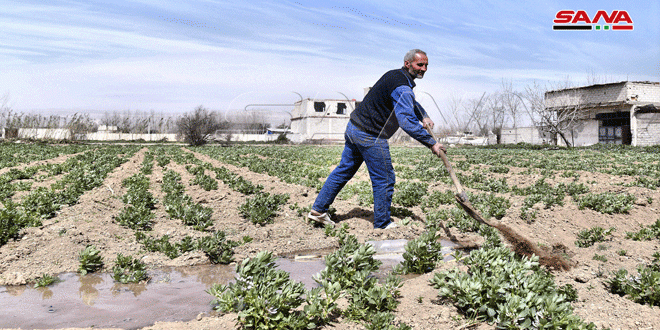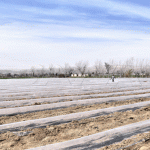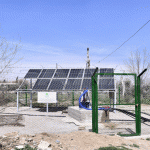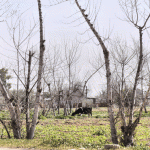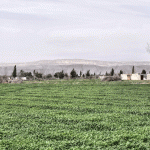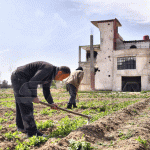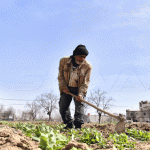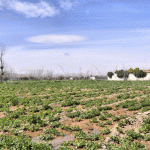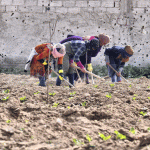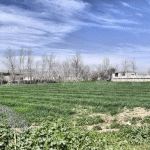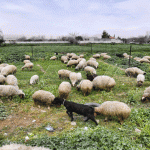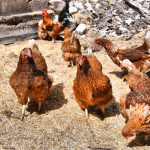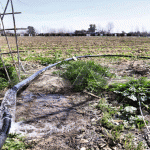Damascus Countryside, SANA- Terrorism forced him to leave his land and his home for five years, during which he has worked as a daily wage worker, and today, three years after the moment when the Syrian Arab Army announced the liberation of his village (Aftaris) in Eastern Ghouta from terrorism, Ismail Abdullah Wannouseh returned to wait for a new agricultural season in his land which he has planted with his primitive tools.
“When I come to my land every day, I feel that I am reborn as I am grateful to the heroes of the army who, with their sacrifices, brought life back to our village after terrorism destroyed all the elements of its agriculture, where it destroyed water wells, stole machinery, cut down fruit trees, burned crops, and caused the loss of livestock,” Wannouseh told SANA.
He added that the farmers are gradually rehabilitating their lands and cultivating them anew, and spring this year is promising.
“I started to rehabilitate my land from scratch, with primitive means and the available capabilities, and with joint efforts by the farmers in the village, and the support provided by the government, as we replanted summer and winter crops,” Wannouseh added, considering that the current situation is much better, especially with a sense of security.
Farmer Ahmed Walid states that he was displaced from his village because of the terrorists who seized his land and plundered its wealth, which led to its exit from production for more than nine years, but with the liberation of the village and the return of security, he restored his house, cultivated his land and took care of it and reaped the fruits of a whole season and the production has been improving and increasing from year to year.
Three years were enough for his land to return to production, but it did not make farmer Anwar Shabraq forget the feelings of sadness that he felt at the moment of seeing his land completely burned.
Shabraq “when I saw it I burst into tears because I was unable to start from scratch, but I borrowed money from some relatives and started restoring what was left of my house and my land and planted it with summer crops, and we have gradually moved to the use of modern technologies.”
“My land used to consist of cut trunks and burned branches, but today it is full of fruit trees and crops of lettuce, beans, peas and others,” says Mustafa al-Badawi, a resident of Beit Sawa.
With the return of the Badawi and other farmers to their lands and their cultivation, the agricultural situation in the town of Beit Sawa has improved by 80 percent, according to Head of the Agricultural Society in the town, Abdel Aziz Sa’adat, who explains that the farmers cultivated their land with the available resources and government support, which he hopes to increase with the high prices of agricultural supplies to achieve self-sufficiency.
Director of Agriculture Department in Damascus Countryside, Engineer Irfan Ziyad, explains in a statement to SANA that the Ministry of Agriculture and Agrarian Reform, after the liberation of Ghouta, has worked through its directorate to limit the damage to the agricultural sector in its two animal and agricultural sectors, including sabotage of irrigation and electricity networks, agricultural roads, wells and cutting of fruit trees and livestock facilities.
Ruaa al-Jazaeri
 Syrian Arab News Agency S A N A
Syrian Arab News Agency S A N A
